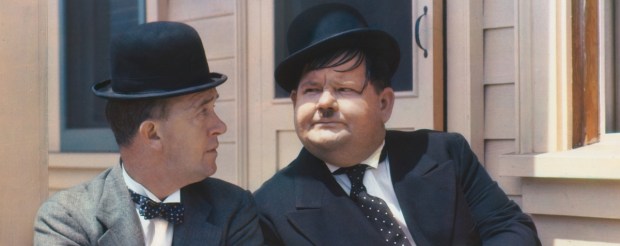Sickness is no laughing matter, but when one of my family members experienced a health crisis recently, humor played a critical role in helping my family cope. Along with doctor updates and incomprehensible test results, we also exchanged texts about the fashion worthiness of hospital gowns and the delectability of liquid diets. Amid all the anxiety, these little jokes provided palpable relief. Life can be stressful at times, but even when we are suffering, we can try to help each other smile.
With such a wonderful tool at our disposal, why then has our world grown so increasingly humorless?
It’s not that laughter has been entirely abolished, of course; but these days we laugh less at ourselves and more at the foibles of others.
Is social media to blame? Online “humor” can certainly be meanspirited. Take for instance a recent craze on Tiktok called the #eggcrackchallenge in which parents surprised their kids by cracking eggs on their heads while filming the result. Those videos earned a lot of pushback and it’s no wonder. The irresponsible adults who attempted this stunt often left their kids shaken and in tears. Jokes can heal, but also harm and betray.
Theories of funny
The line between funny and offensive has always been very thin. It’s hard to explain the difference – or even to define what humor is exactly. Humor is such a basic human characteristic that it’s amazing that we understand it so little. Attempts have been made to construct theories of humor, but none of them comes close to explaining why one joke is funny and another falls flat. It seems these theories are all laughable, but not in the humorous sense.
There are even academic journals devoted exclusively to the topic. I’m sure that many of the papers in the International Journal of Humor Research are fascinating, but I doubt even a thousand years of academic research will succeed in unlocking the secrets of humor.
Not surprisingly, G.K. Chesterton may have come closest to identifying the essence of humor when he insisted that it “corresponds to the human virtue of humility” and that it has “a sense of the mysteries.”

Laughter, wit, and humor
Chesterton made a useful distinction between laughter, wit, and humor. Laughter, while it can be positive, does not reach very deep, because it lacks judgment and meaning. We have all had the experience of falling into laughing fits with our friends. Someone starts giggling and the laughter becomes contagious. The feeling is fun while it lasts, but the effect is purely physiological and soon passes. That sort of laughter is like eating donuts – all empty calories.
Wit is more sophisticated. Chesterton said that it is “the human intellect exerting its full strength, though perhaps upon a small point. Wit is reason on its judgment seat; and though the offenders may be touched lightly, the point is that the judge is not touched at all.” The great Oscar Wilde was a master of wit, as when he quipped: “Always forgive your enemies – nothing annoys them so much.”
The best and truest humor, though, seeks to affirm a deeper judgment or to affirm a great value. The judgment it makes is directed at all of us, including at the humorist. It tells us that we are fallible creatures in need of grace. A favorite movie that exemplifies this humor is The Russians are Coming! The Russians are Coming! It is genuinely hilarious and contains some of the best slapstick comedy ever filmed, but the humor is also poignant because it speaks a truth to us: If we do not get over our vanity and petty squabbles, we humans are going to blow ourselves up.
Humor, humility, and hope
This corrective use of humor is perhaps best illustrated by St. Philip Neri. He was so close to God and so obviously holy that he turned to his sense of humor to preserve his humility. Once, when a scholarly bishop attended a Mass that he was celebrating, St. Philip kept purposely mispronouncing the words in his homily to comic effect. He would also ask people to tell him jokes before Mass to keep himself from falling into mystical reveries.
Then there is St. John XXIII, who when asked by a journalist how many people worked at the Vatican, replied with a smile, “Oh, no more than half of them.”
At its most powerful, a really great joke is a weapon against despair. It can reaffirm that reality is good, even when the immediate evidence seems to point to the opposite conclusion.
I still vividly remember the day that President Ronald Reagan was shot in 1981. As a young person, it was my first experience of feeling as if the world had suddenly gone mad. Shortly afterwards it was reported that when his wife Nancy rushed to him at the hospital Ronald told her, “Honey, I forgot to duck.” And as he was wheeled into surgery, close to death, he smiled at the doctors and told them, “Please assure me that you are all Republicans!” At that moment, regardless of your political leanings, you had to admire the man’s spirit. His simple jokes helped restore a sense of decency and order to the world.
In these tense days when so many seem to be fretful or angry at something or other, let’s keep in mind the example of Pope Francis who in 2016 told an interviewer that he prays every day for the gift of a sense of humor. “It’s a human attribute, but it’s the closest to God’s grace,” the Pope said.


